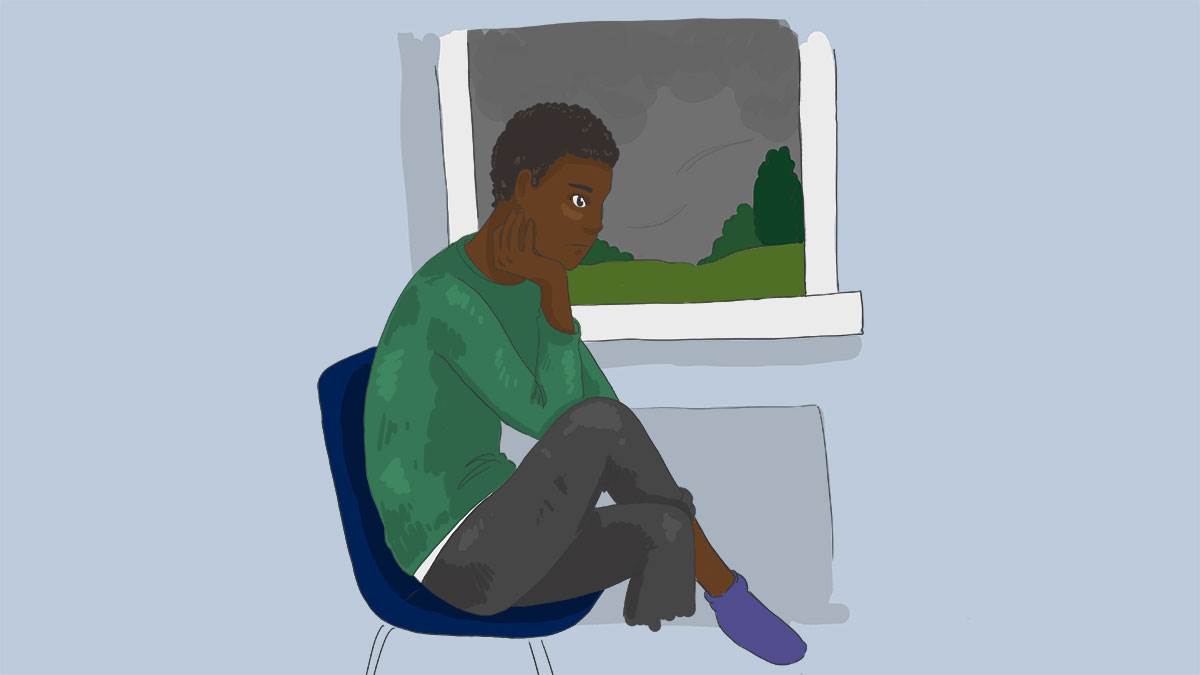5 top tips for parents dealing with their child's mental health
Published on: 1 Ebrill 2019 Author: Anna Williamson
Anna Williamson is a trained therapist and Childline counsellor, whose new book focuses on the key issues that can affect children’s mental health. She has some advice for any worried parents and carers.

Being a parent is undoubtedly one of the most rewarding and yet overwhelming jobs anyone can do. Like everything in life, it comes down to learning as you go along and simply being the best you can be – there is no such thing as a perfect parent!
Understanding what is going on for your child and helping to support them mentally, emotionally and physically will not only be a great thing for them, but will also help you feel more involved in your child’s life and empowered in your parenting skills.
1. Don’t assume that everything in a child’s world is rosy.
It may seem like young people have nothing to worry about, but sadly, the reality is far from that. There are lots of concerns pressing down on children today – instead of hoping that any issues will go away, make sure you ask your child questions and show them support.
2. Be careful not to judge a young person’s perspective and compare it to your own.
Adults have a whole different set of worries to children (such as finances, relationships). Remember that young people have equally concerning issues and challenges, like friendships and peer pressure. Try and see what life is like through their eyes to gain a better understanding.
3. Be open and non-judgemental when talking to your child.
Offering a safe space for children to talk to you about anything that’s on their mind will really help them to open up. And in turn, it will help you to understand and empathise with them about what’s going on in their world.
4. Choose your timing wisely.
It’s a good idea to make sure you aren’t busy or distracted when engaging in conversation with your child, so you can give them your full attention. This is key in getting your child on side and helping them to trust you. Don’t confront them – instead, perhaps give them a bit of notice that you would like a chat. You could engage with them on the school journey home or on a walk when things seem a bit less intense.
5. Look out for changes in behaviour and mood, and for anything that seems out of character.
Mental health issues can present in so many different ways – some of the most common symptoms include:
- being withdrawn
- mood swings
- fidgeting or restless behaviour
- being secretive
- spending vast amounts of time on social media
- worrying a lot more than usual.
It’s best to be on the safe side and to enquire about your child’s wellbeing rather than to just dismiss it as "teen behaviour".
Useful books to share with your child
Looking for some book recommendations on mental health and wellbeing issues for your child? Try one of these...
Book to support mental health awareness for ages 8 and over
Books that acknowledge or explore mental health issues can help to increase awareness, encourage dialogue, reduce stigma and develop real understanding. The following suggestions offer a spectrum of different perspectives and are well worth seeking out.
Books to help your child feel more calm and mindful
Why should adults get all the self-help books? You can also find some lovely reads and activities for youngsters who need a little extra support to feel relaxed, mindful, grateful, inspired and happy.
As well as being trained therapist and Childline counsellor, Anna is an ambassador for Mind and The Prince's Trust, a broadcaster and a bestselling adult mental health author. How Not To Lose It: Mental Health Sorted covers all the key issues that affect children’s mental health, including: worry, anxiety, stress, social media relationships (family and friends), bullying, peer pressure, self-esteem and much more. It's out now in paperback and ebook (Scholastic).
Topics: 6-8 years, 9-11 years, 12+, KS1, KS2, KS3, Primary, Secondary, Mental health, Features








Add a comment